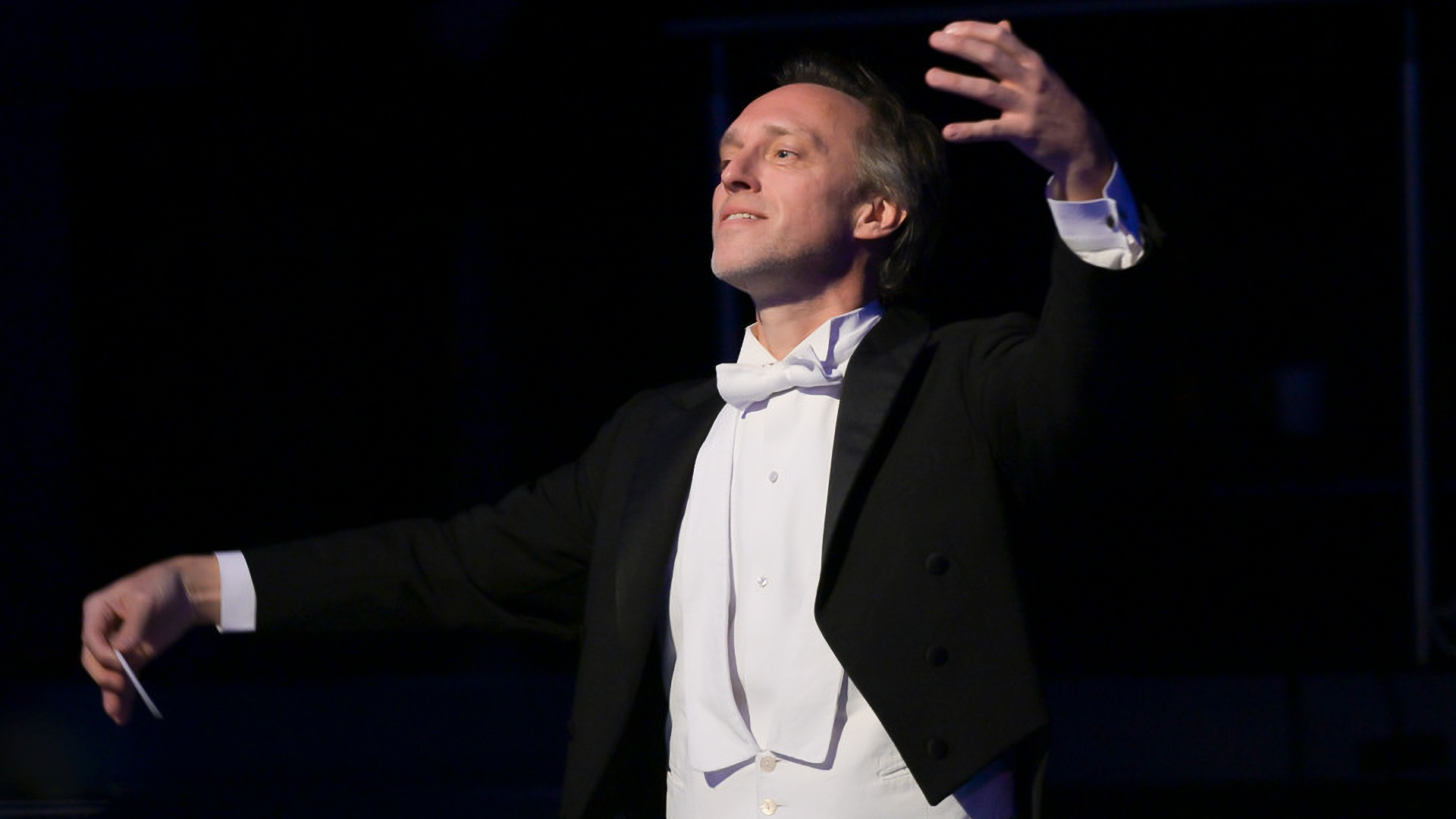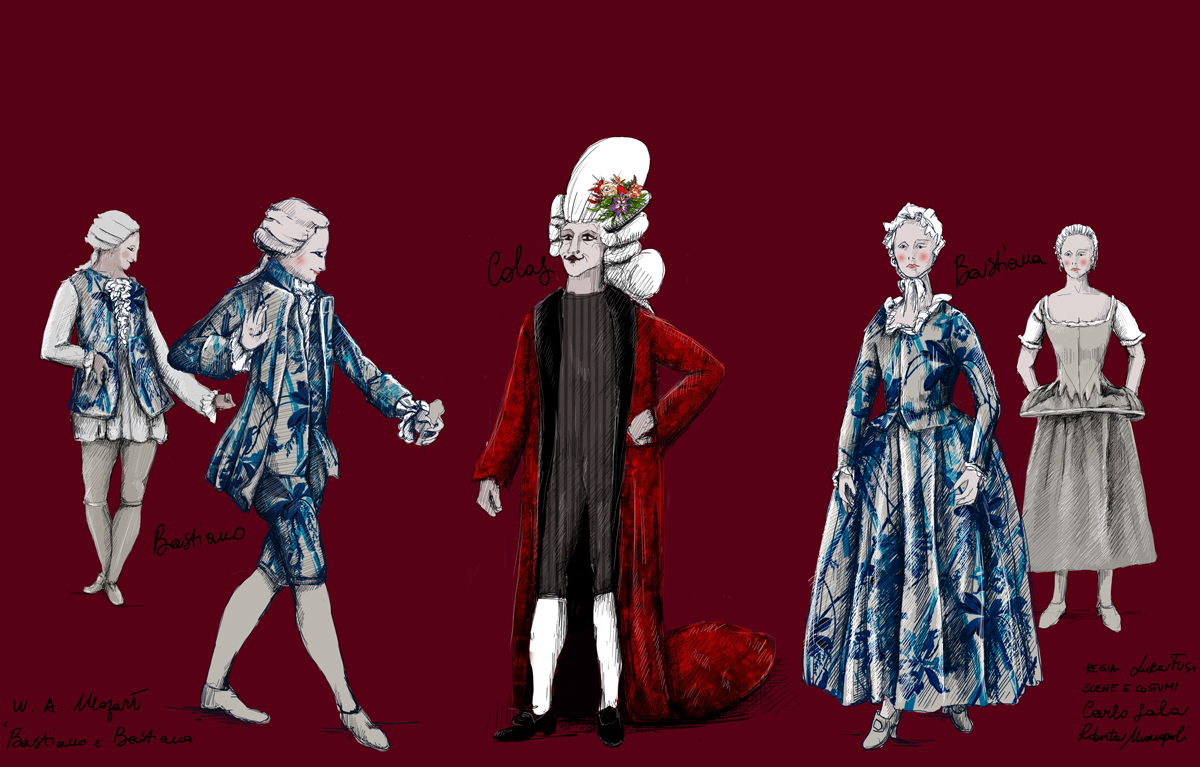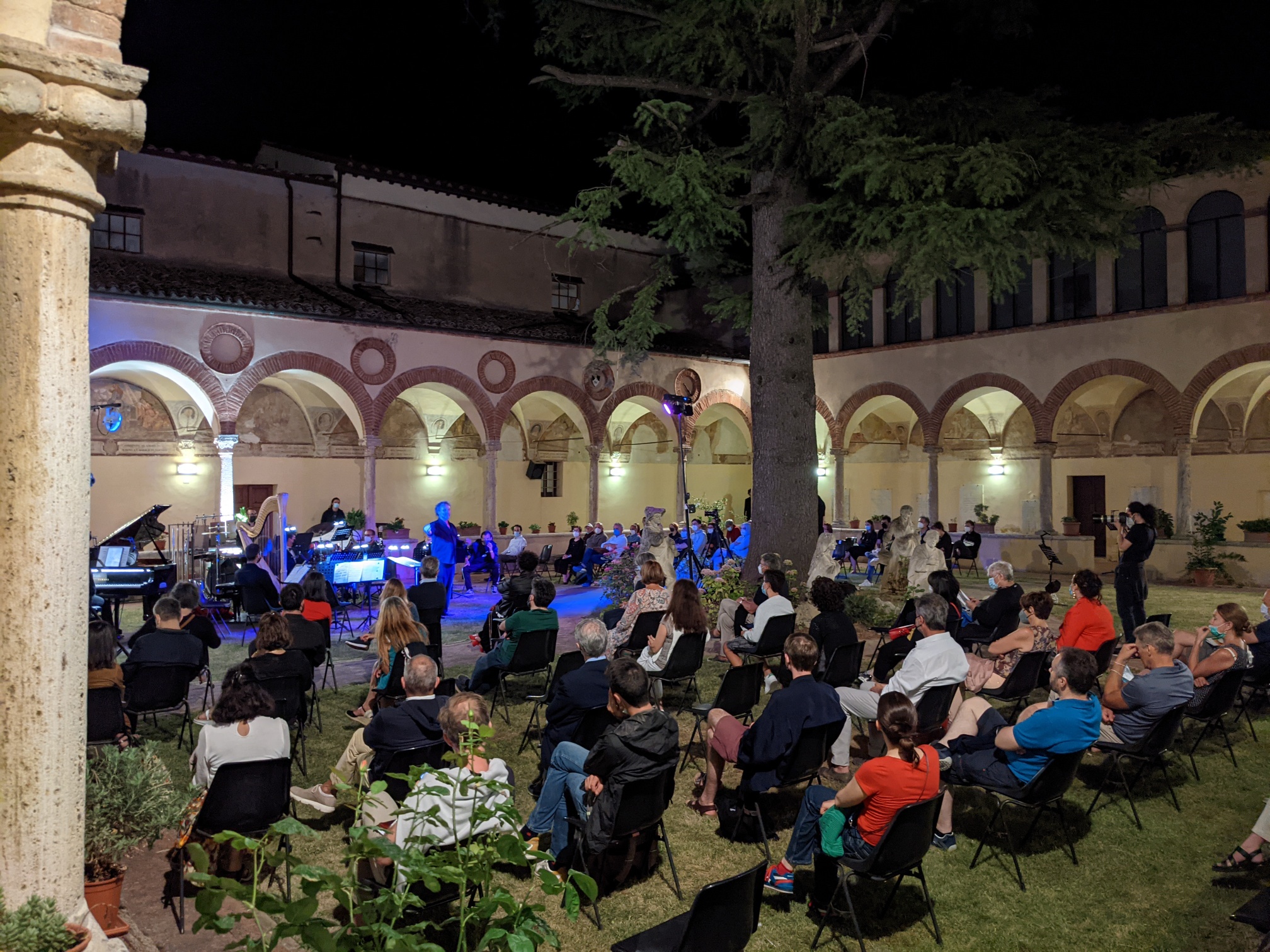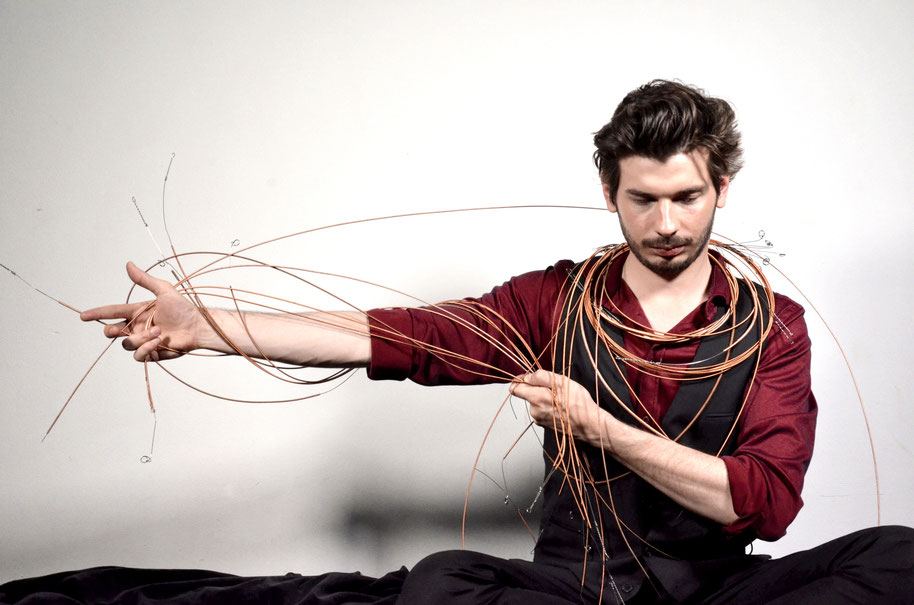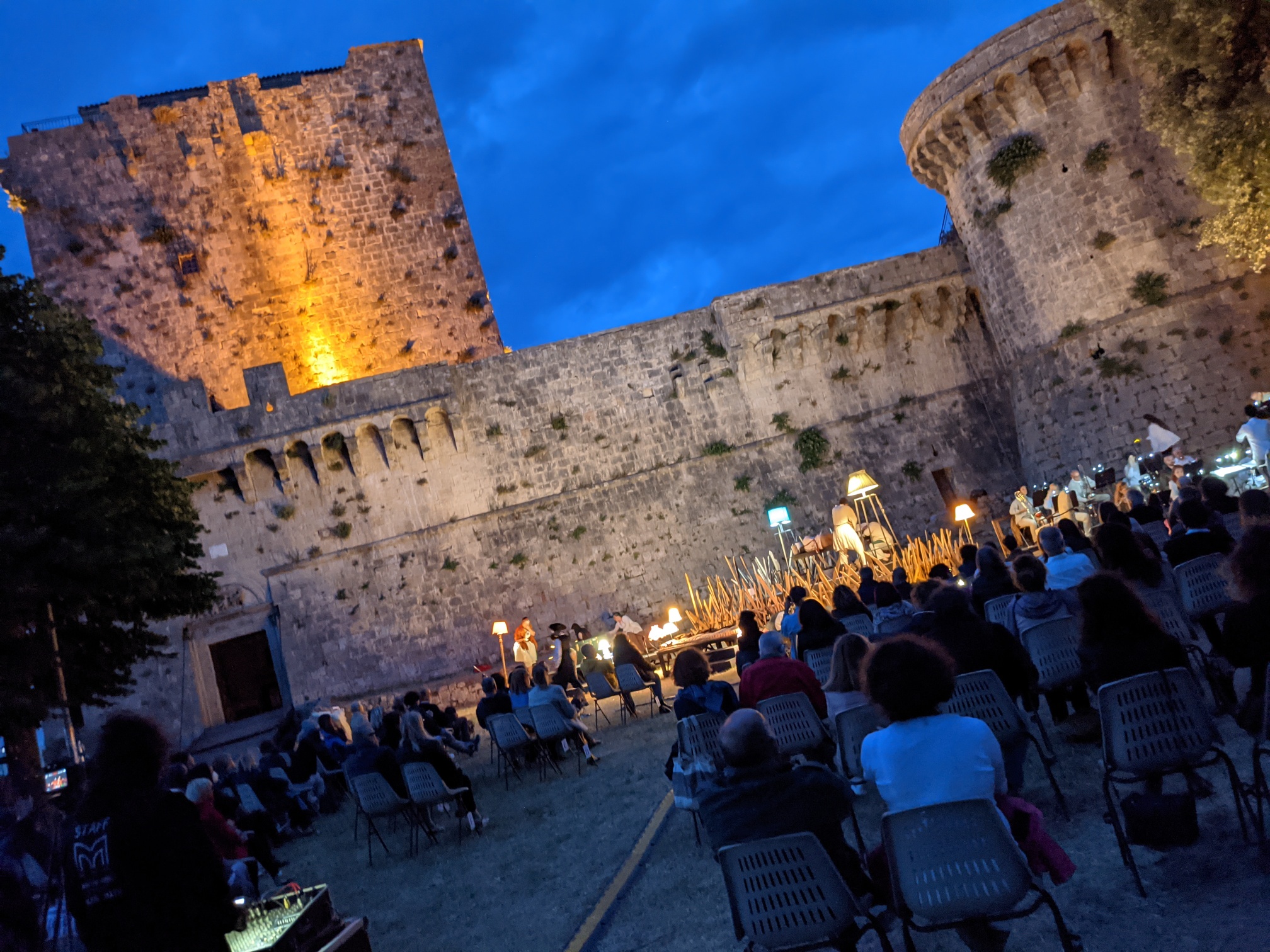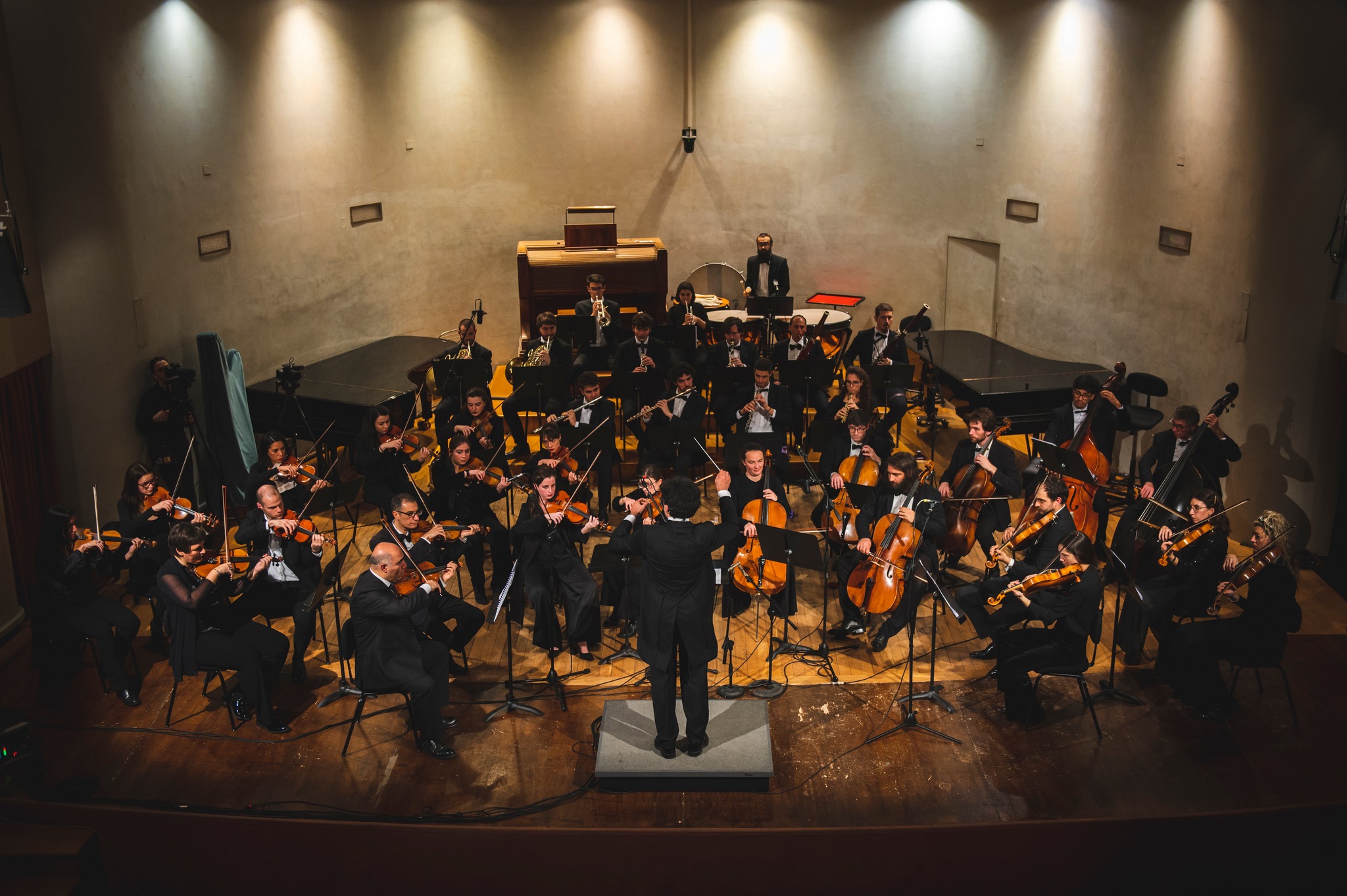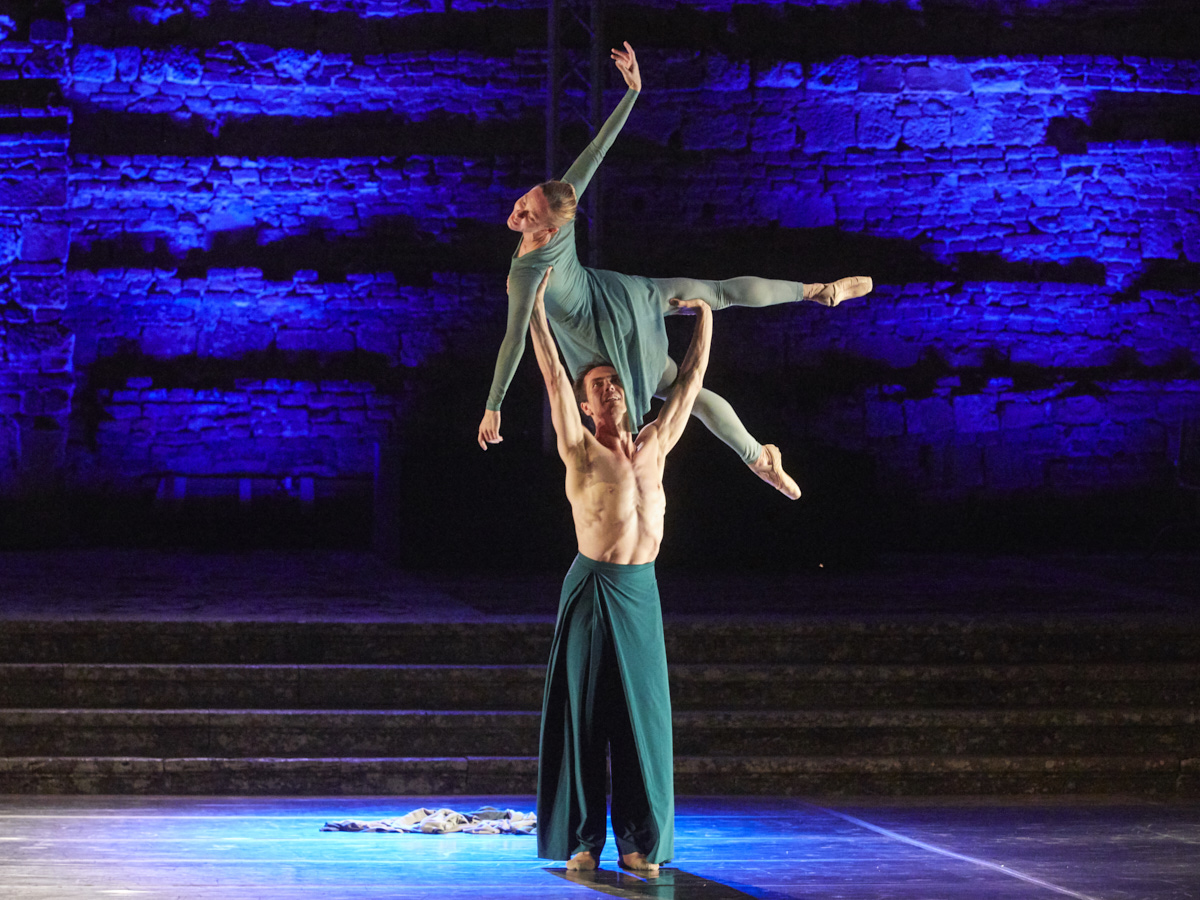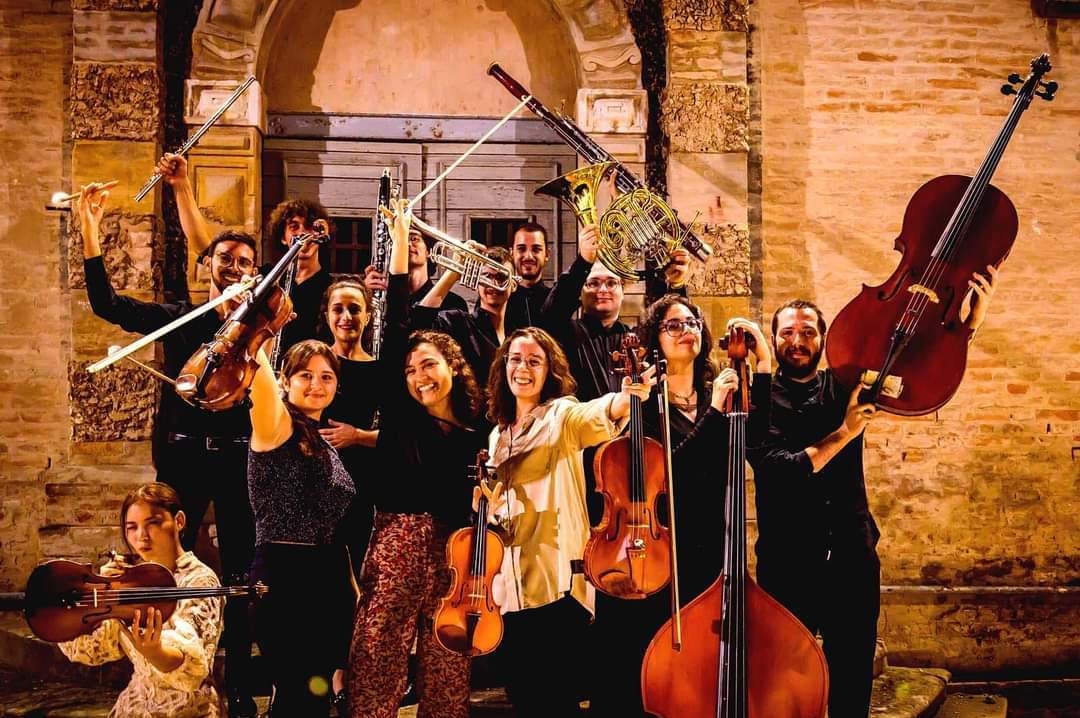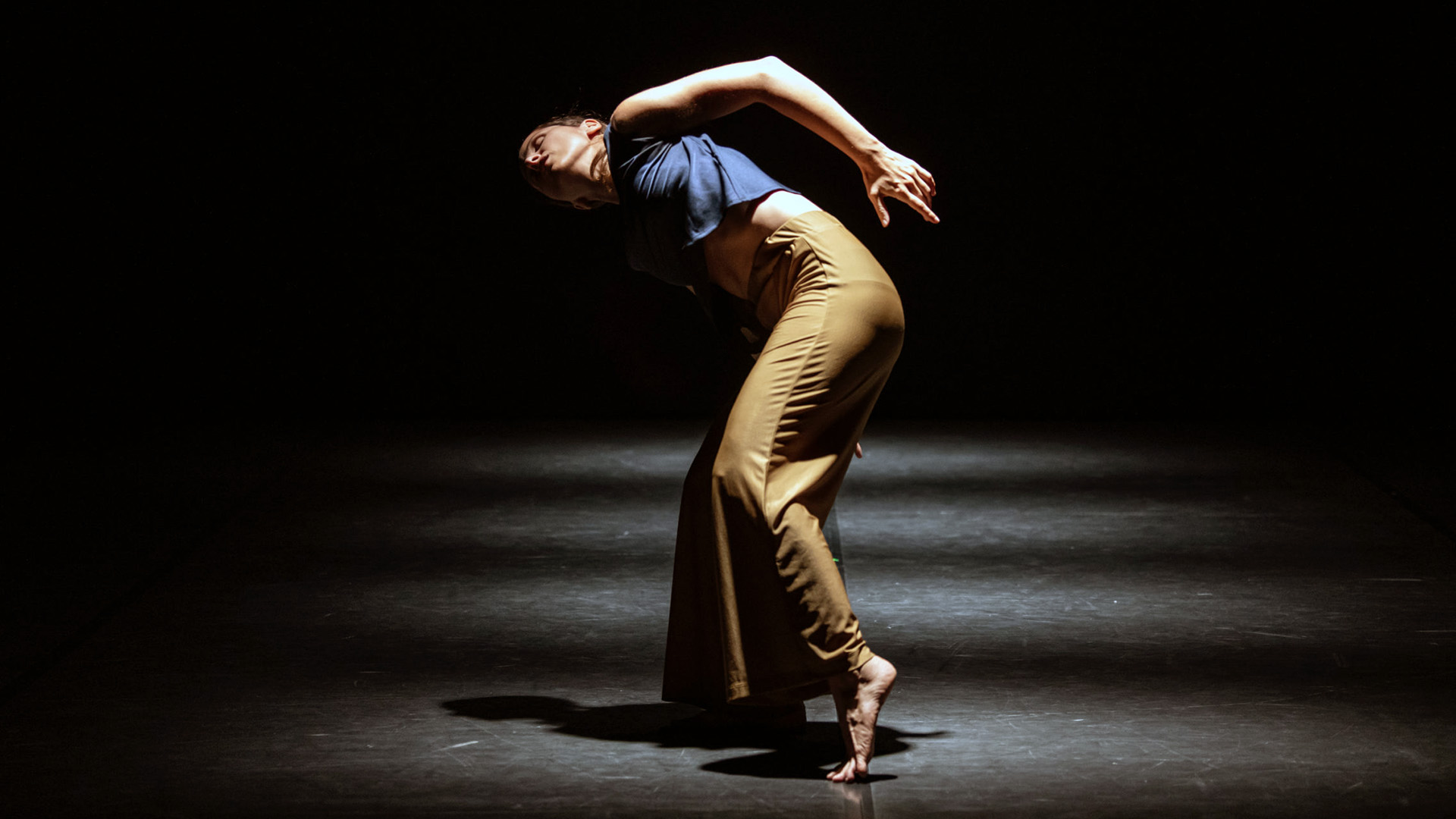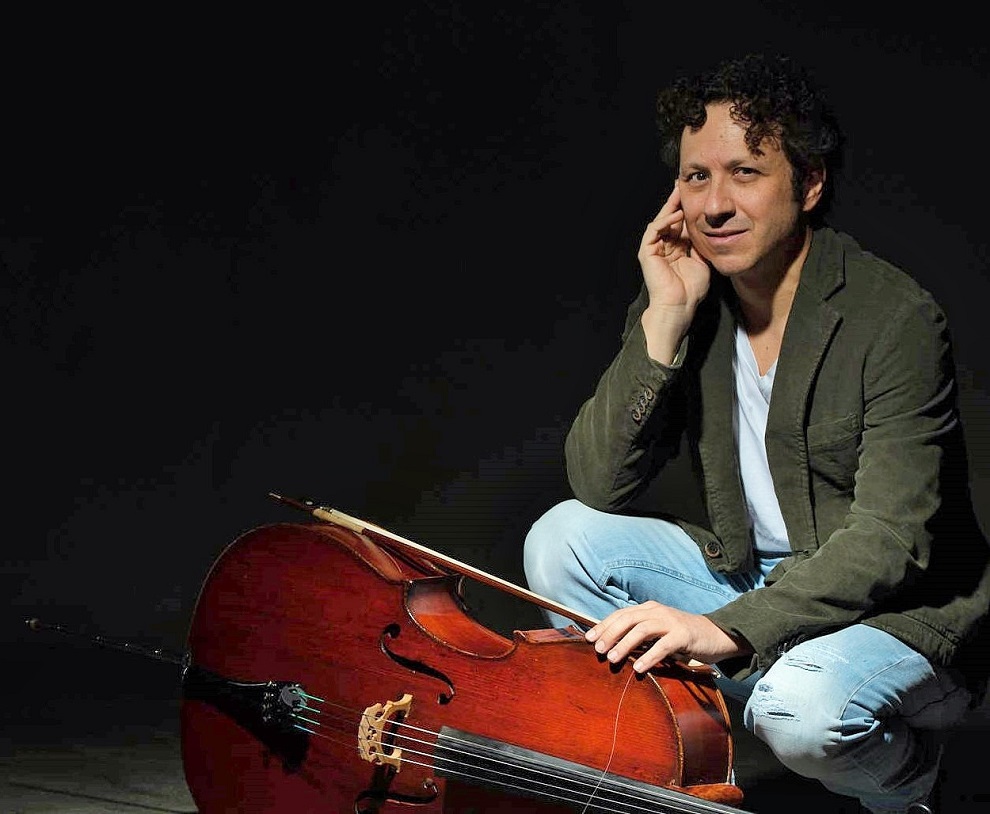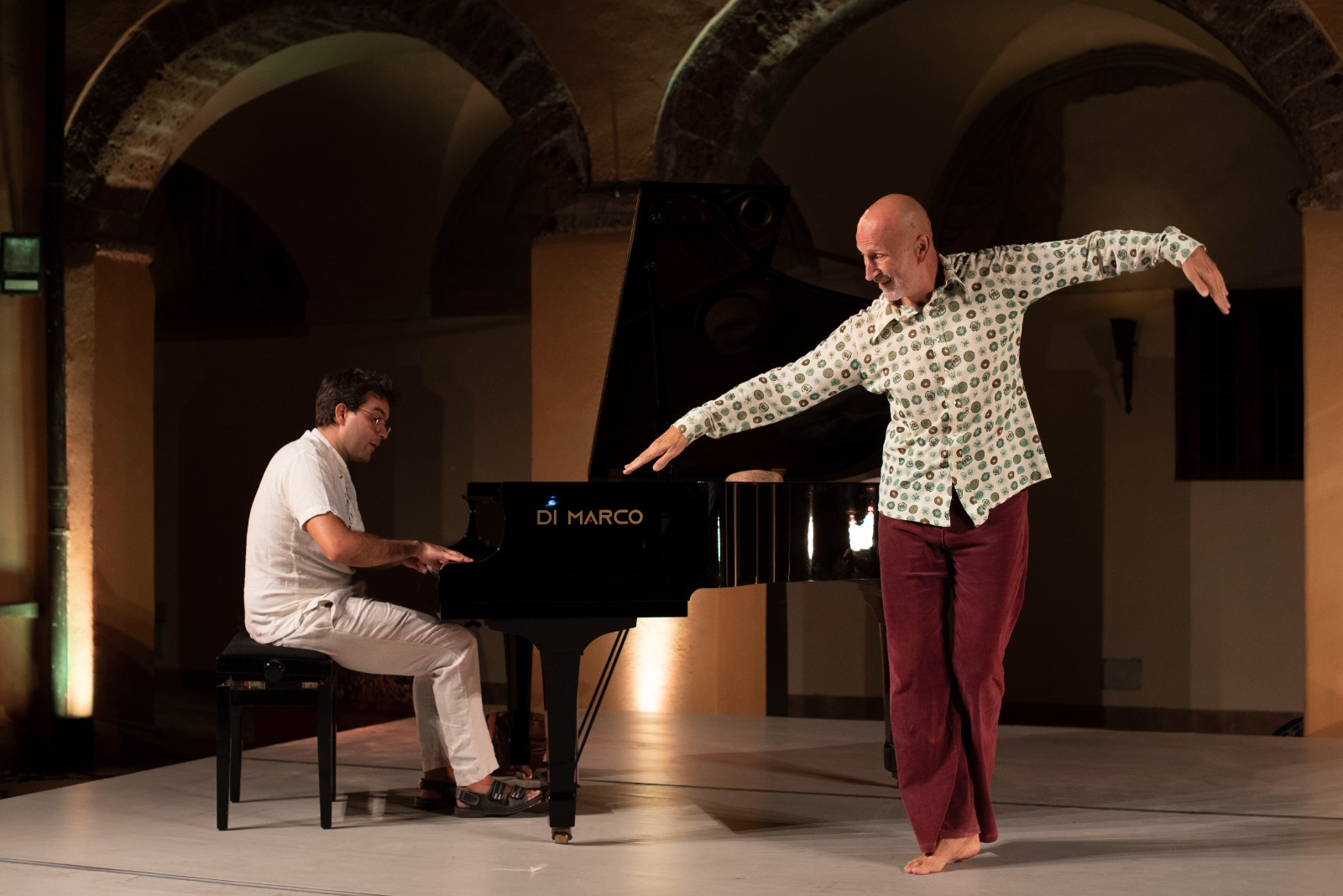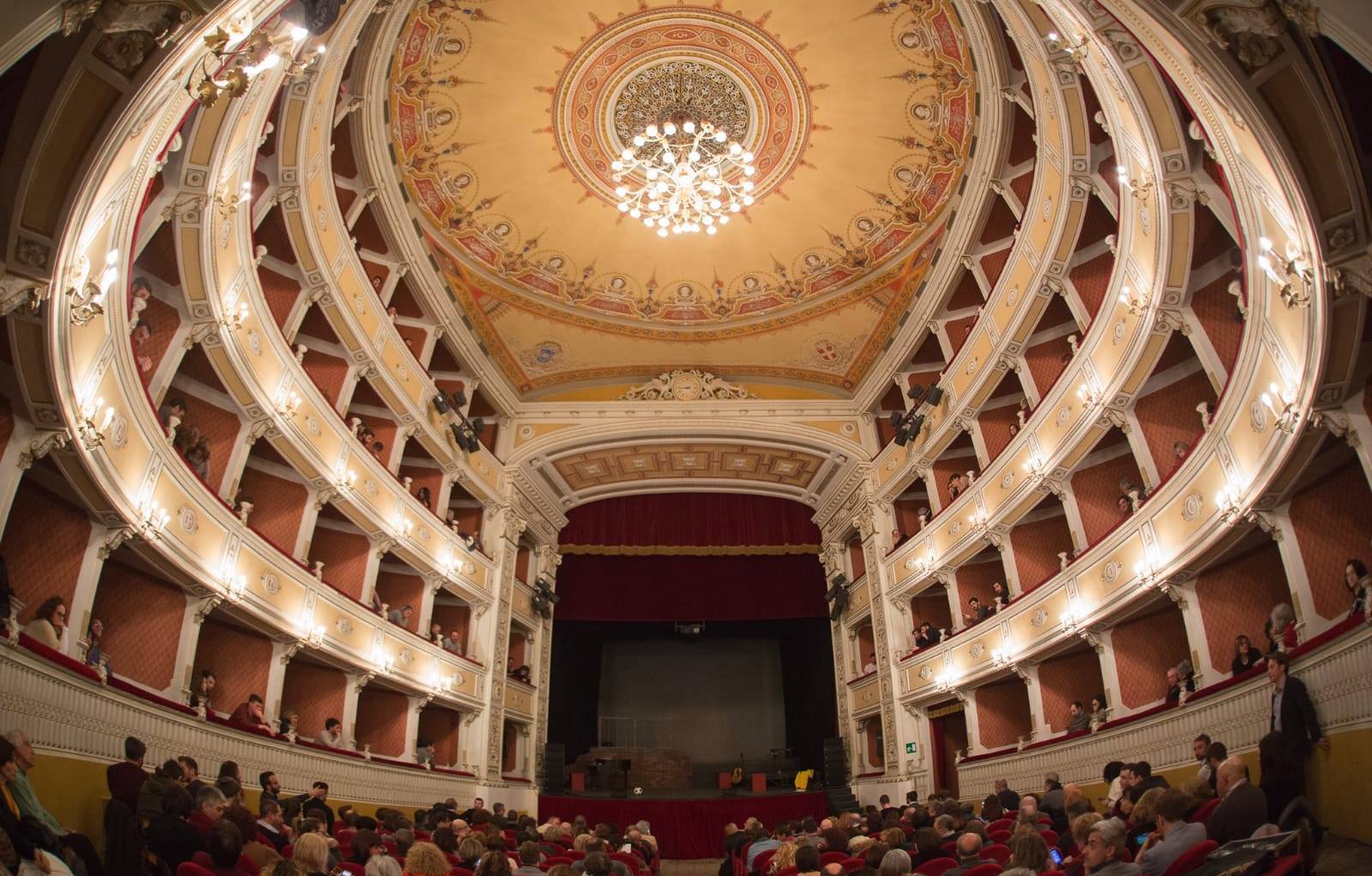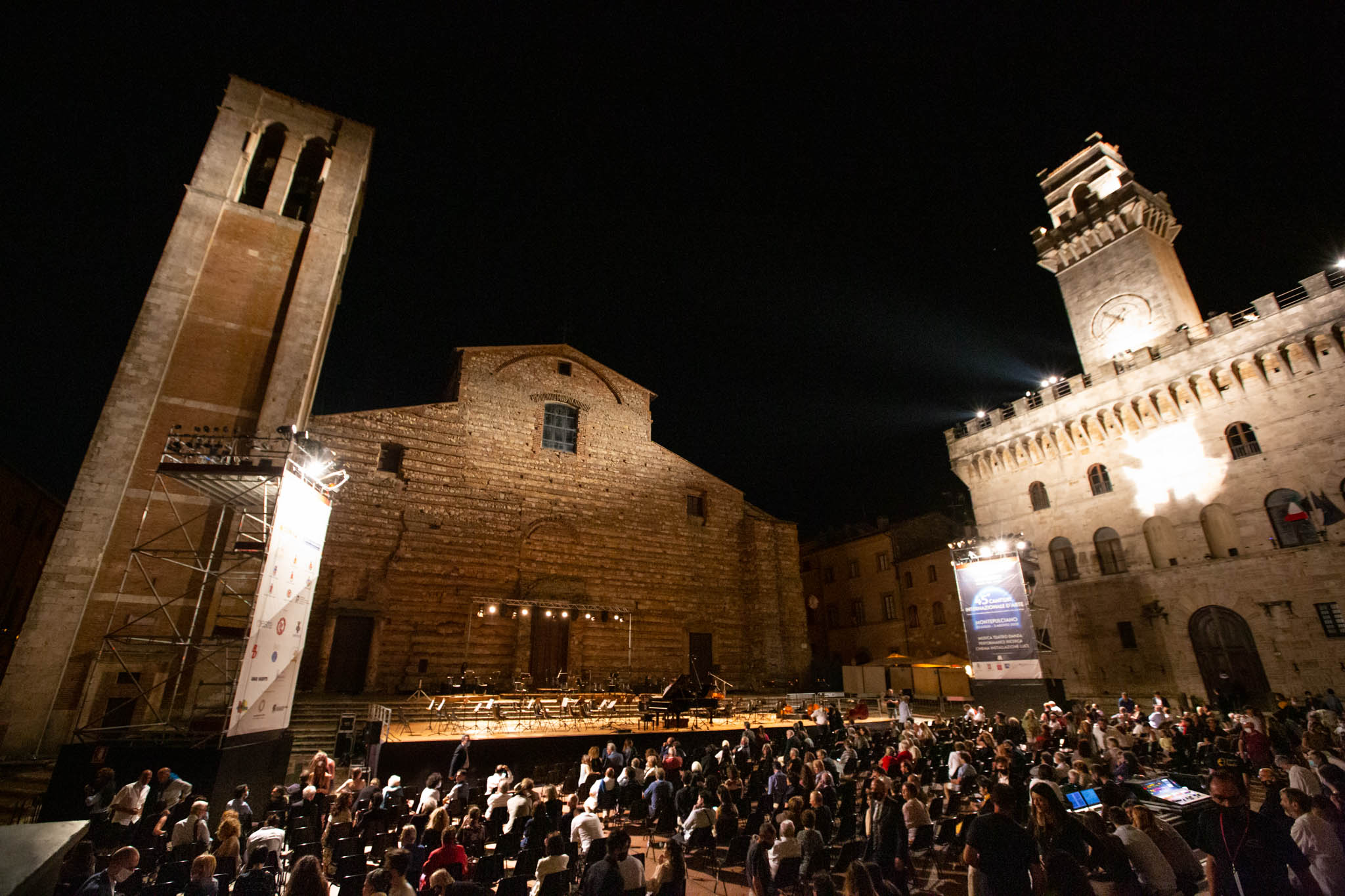GIOCO ENIGMATICO
MONTEPULCIANO - Cortile delle Carceri
Giovedì 20 luglio, ore 18
GIOCO ENIGMATICO
Eutopia Ensemble
Francesco Darmanin clarinetto
Damiano Barreto violino
Martina Romano violoncello
Valentina Messa pianoforte
Carlo Sampaolesi fisarmonica
Matteo Manzitti direttore
Fabio Nieder (1957)
Terracotta per clarinetto solo
Oberton Elegie in G
per violino pizzicato e scacciapensieri
Règis Campo (1968)
Fata Morgana II per violino e pianoforte
Boris Porena (1927-2022)
Decostruzione Frammenti Ricostruzione trio n. 3 per violino, violoncello e pianoforte
prima assoluta
Vincenzo Parisi (1984)
Surf’s Down per violino, clarinetto, pianoforte e fisarmonica
Michael Zev Gordon (1963)
Once Again the Glass Mountain per violino, violoncello, clarinetto, pianoforte, fisarmonica
prima assoluta, commissione 48º Cantiere
Matteo Manzitti (1983)
Paignion per violino, violoncello, clarinetto, pianoforte, fisarmonica
prima assoluta, commissione 48º Cantiere
___________________________
Il programma proposto da Eutopia Ensemble in questo concerto si muove tra l’ironico e l’onirico, lungo un filo sottile che rivela aspetti di curiosa reciprocità tra questi due elementi.
Il suono dello scacciapensieri usato da Fabio Nieder in Oberton-Elegie in G ci parla di un universo che, per dirla con Dario Fo, è sia misterioso che buffo, un luogo dell’anima cioè dove il magico e il comico s’intrecciano fino a confondersi. Vincenzo Parisi insegue a suo modo il suono di questo strumento, senza usarlo direttamente, nel suo Surf’s Down, che trasfigura antichi canti popolari tradizionali siciliani in una trama sonora distopica e cangiante. La relazione tra magia ed ironia si fa poi ancora più esplicita in Fata Morgana II di Règis Campo, composizione pensata da una delle voci più originali e colorate del panorama musicale contemporaneo. Decostruzione Frammenti e Ricostruzione è invece l’ultimo trio, in Prima Esecuzione Assoluta, di Boris Porena, noto compositore, didatta ed epistemologo da poco scomparso: una sorta di riflessione musicale sulla capacità di trasformazione del materiale sonoro; mentre Paignion di Matteo Manzitti, brano commissionato dalla Fondazione Cantiere Internazionale d’Arte di Montepulciano, parte da quest’antica parola greca per indagare il senso più profondo di ciò che chiamiamo “gioco”. Chiude il programma Once Again The Glass Mountain, terza prima assoluta e seconda commissione del Cantiere al compositore inglese Micheal Gordon. Matteo Manzitti
The concert presented by the Eutopia Ensemble moves between the ironic and the dreamlike, along a thin thread that reveals aspects of curious reciprocity between these two facets. The sound of the Mouth Harp used by Fabio Nieder in Oberton-Elegie in G speaks to us of a universe that, in the words of Dario Fo, is both mysterious and comic, a place of the soul, that is, where the magical and the comic interweave to the point of blurring. Vincenzo Parisi pursues the sound of this instrument in his own way, without using it directly, in his Surf's Down, which morphs ancient traditional Sicilian folk songs into a dystopian and shimmering sound texture. The relationship between magic and irony becomes even more explicit in Fata Morgana II by Règis Campo, a composition conceived by one of the most original and colourful voices on the contemporary music scene. Deconstruction Fragments and Reconstruction, meanwhile, is the last trio by Boris Porena, the well-known composer, teacher and epistemologist who recently passed away, in its World Premiere: a sort of musical reflection on the metamorphic potential of sound material; while Paignion by Matteo Manzitti, a piece commissioned by the Fondazione Cantiere Internazionale d'Arte di Montepulciano, starts from this ancient Greek word to explore the deepest sense of what we call 'jeu d’esprit'. Once Again The Glass Mountain, the third world premiere and second commission from the Cantiere to the English composer Michael Gordon, closes the programme. Matteo Manzitti
Once Again the Glass Mountain per piccolo ensemble (2023)
Per molto tempo ho scritto composizioni che esplorano la memoria, in particolare i sentimenti che derivano dal senso di distanza tra passato e presente. Schumann è una pietra di paragone musicale. Ma la mia influenza principale è l'autore contemporaneo W.G. Sebald. L'immagine nel mio titolo è sua, dal romanzo Austerlitz, in cui scrive: "Quando i ricordi ti tornano in mente, a volte ti sembra di guardare il passato attraverso una montagna di vetro". Presumo che significhi che vediamo eventi e sentimenti passati come attraverso uno spazio enorme; sono paradossalmente nitidi e sfocati, sempre fuori portata. Trovo l'immagine profondamente evocativa e toccante - e questa è la terza volta che la uso per il titolo di un pezzo. Qui il brano è in sette brevi movimenti uniti tra loro. I numeri 1, 3 e 5 utilizzano lo stesso materiale, accorciandosi ogni volta. Alla fine di ogni frase si sentono minuscoli frammenti di una melodia del passato: la prima riga di una canzone yiddish intitolata Yankele del compositore di canzoni popolari polacco Mordechai Gebirtig, che fu – come mio nonno – ucciso nella seconda guerra mondiale per essere stato ebreo. I movimenti 2, 4 e 6 si elaborano in modi diversi in questi frammenti. Ma questo è tanto mettendoli fuori fuoco quanto a fuoco. Il movimento finale breve e molto tranquillo per un momento sembra avvicinare la melodia includendo alcune note extra. Ma anch'essa poi retrocede di nuovo, trascinata via – per come la vedo io – nell'abisso della montagna e del passato. Michael Zev Gordon
For a long time, I have written pieces which explore memory, in particular the feelings that come with the sense of distance between past and present. Schumann is a musical touchstone. But my overriding influence is the contemporary author W.G. Sebald. The image in my title is his, from the novel Austerlitz, in which he writes: ‘When memories come back to you, you sometimes feel as if you were looking at the past through a glass mountain’. I take it to mean that we see past events and feelings as though through an enormous space; they are paradoxically clear and blurred, forever just out of reach. I find the image deeply evocative and poignant – and this is the third time I’ve used it for the title of a piece. Here the piece is in seven short movements joined together. Nos. 1, 3 and 5 use the same material, getting shorter each time. At the end of each phrase, tiny fragments of a melody from the past are heard: the first line of a Yiddish song called Yankele by the Polish popular song composer Mordechai Gebirtig, who was – like my grandfather – killed in World War 2 for being Jewish. Movements 2, 4 and 6 elaborate in different ways in these fragments. But this is as much by putting them out of focus as into focus. The final brief and very quiet movement for a moment seems to bring the melody closer by including a few extra notes of it. But it too then recedes again, being pulled away – as I see it – into the chasm of the mountain and the past. Michael Zev Gordon
 Sostieni i progetti
Sostieni i progetti Amministrazione Trasparente
Amministrazione Trasparente Contatti
Contatti

